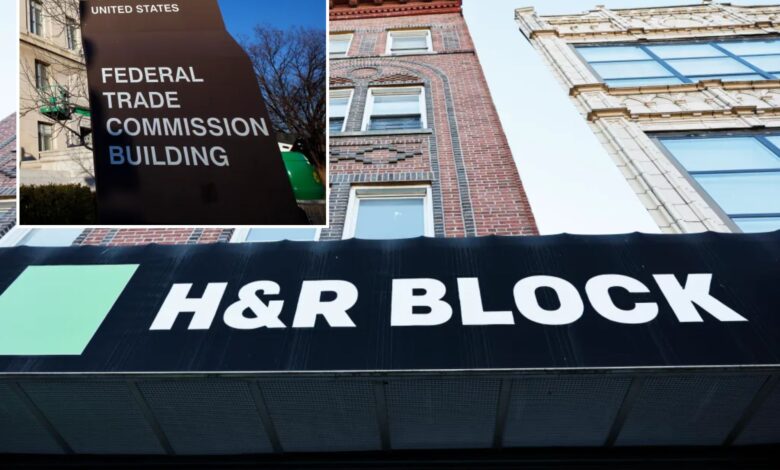H&R Block sues FTC over ‘deceptive’ free filings tax ads

H&R Block sued the US Federal Trade Commission, seeking an order that could throw a wrench in the agency’s complaint that the tax-filing software uses deceptive marketing in its ads that touts its services as free.
The lawsuit was filed in Kansas City, Mo., federal court and claims the FTC’s use of internal administrative law judges to hear cases violates the US Constitution.
Wednesday’s lawsuit cites the power of US presidents enshrined in the Constitution to remove “inferior officers.”
It says the FTC’s internal judges are improperly insulated from that authority, and that the agency must abandon their use.
“The FTC could still vindicate its law-enforcement interests by conducting the adjudication itself,” the lawsuit said.
H&R Block declined to comment on the lawsuit but said it “offers fair and transparent pricing.”
“H&R Block has offered a free DIY filing option for more than 20 years to help millions of Americans file their taxes. The multitude of resources we offer to all filers via educational resources, free tools, and calculators, and The Tax Institute demonstrates our commitment to making filing your taxes more accessible and more transparent for all,” Dara Redler, H&R Block’s Chief Legal Officer, added in a statement to The Post.
The FTC last month accused H&R Block of deceiving customers with broad marketing for “free” online tax filing services that really only apply to simple returns.
The ads did not explain what a simple return was, and the company has changed the definition of the term “multiple times in recent years,” the commission said, saying H&R Block was aware of consumers’ frustration and confusion with the ads.
“H&R Block designed its online products to present an obstacle course of tedious challenges to consumers, pressuring them into overpaying for its products,” Samuel Levine, director of the FTC’s Bureau of Consumer Protection, said at the time of the filing.
On H&R Block’s website, it advertises alternatives to the free version that cost from $35 to $85 for a federal return.
The agency is not seeking any civil penalties, but also accused H&R Block of unfairly deleted consumers’ tax data.
The FTC did not immediately respond to The Post’s request for comment.
H&R Block has denied the FTC’s claims. A hearing before an administrative judge is set for Oct. 23.
The FTC’s administrative law judges preside over hearings and take evidence, and they issue findings that can be appealed to the full commission.
The agency then hears arguments and issues a final order.
Those decisions can be appealed to a US court.
TurboTax software-maker Intuit has said that it plans to appeal a ban the FTC placed on the the company for advertising and marketing services as free when many consumers were ineligible for the bargain offer.
Similarly to its claims against H&R Block, the FTC said that Intuit had engaged in deceptive practices.
In 2022, the company paid $141 million in restitution over similar charges.
However, in other cases, federal agencies’ use of administrative law judges have been contested.
The US Supreme Court in November heard a challenge to the US Securities and Exchange Commission’s similar proceedings using administrative law judges.
The court’s ruling, expected by the end of June, could have broad consequences for such in-house agency tribunals.
With Post wires.




